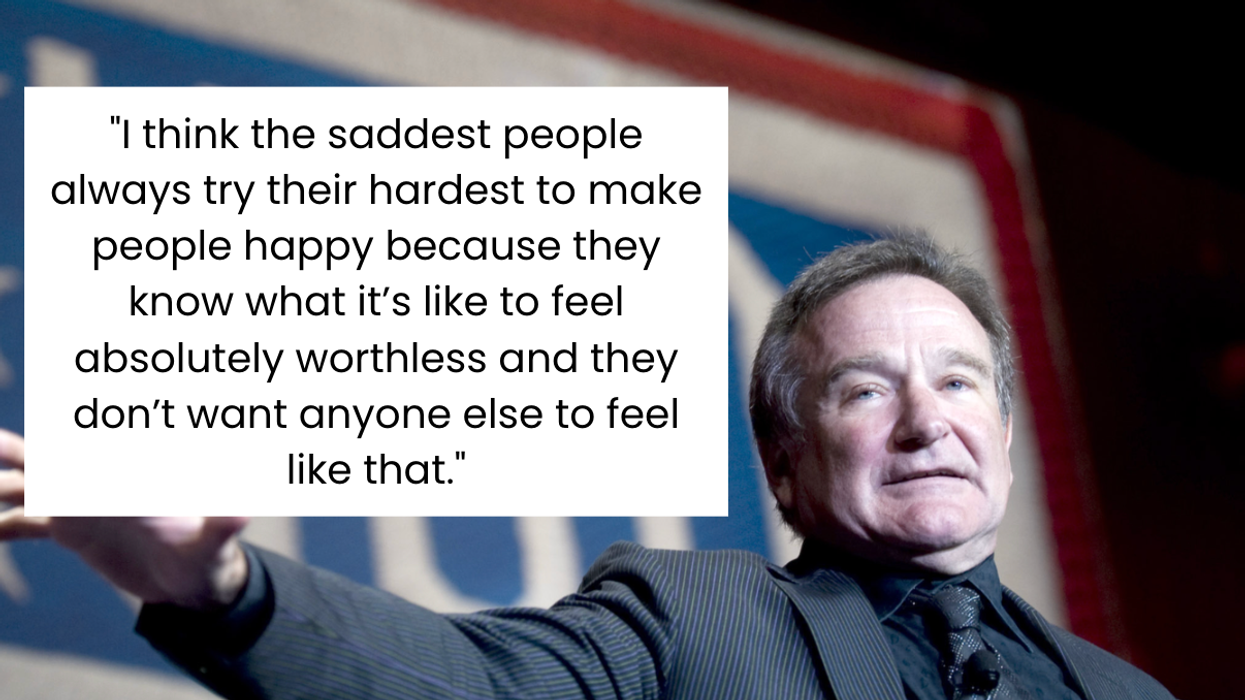Fans of The Biggest Loser were shocked to learn celebrity trainer Bob Harper suffered a severe heart attack two weeks ago and is currently on a shaky path to recovery. According to Cosmopolitan, Harper collapsed mid-workout at a New York gym, but luckily received CPR from a doctor working out in the same facility. Harper has previously spoken about heart disease running in his family, CNN reports. Considering Harper represents the pinnacle of health for millions of Americans, the fact that he suffered a heart attack at 51 years of age raises some questions about the role genetics play versus lifestyle choices.
But Harper is far from alone. According to the Centers for Disease Control and Prevention, roughly 610,000 Americans die from heart disease every year, making it the leading cause of death for both women and men. Worryingly, more than 700,000 Americans suffer a heart attack each year. But is there one thing we could be doing to prevent these health complications from happening? Dr. Nieca Goldberg, who serves as the medical director at NYU’s Joan H. Tisch Center for Women’s Health, says there are several factors at play when it comes to reducing the risk of heart attack. While there are no simple answers, there are proven steps we can take to reduce our risk. In an interview with GOOD, Dr. Goldberg explains exactly what those factors are and how we can best address them.
Obviously, we’re all a little shocked that Bob Harper of all people had a heart attack. Without diagnosing Harper, how big of a role do genetics play versus lifestyle choices when it comes to heart health?
You know, it happens a lot … This was many years ago, but a woman had heart disease and her husband said to her, “I don’t understand how you have this problem, because I’m the one who eats all the steak and French fries and all those things.” Then we get into a discussion of having clogged arteries is a multifaceted problem in that lots of things lead to that. It’s not only just being fit, but high cholesterol, diabetes, cigarette smoking, your diet, being overweight, and somehow genetics also (play a role). About half of it is explained by the traditional risk factors everyone knows, and the other half is unknown. Part of that is genetics.
Are there certain things we can’t control no matter how perfect our diet is or how much we exercise?
Well, we need to sort of make the distinction that you could have the perfect diet and exercise program, not smoke, and do everything right, and that will lower your risk of heart disease; but if you have certain a genetic predisposition, it won’t eliminate your risk for heart disease. There are studies that show that some people who have a family history of early heart disease, meaning your mom was less than 60 or your dad less than 50 when they had their heart disease diagnosed or had a heart attack, then if you exercise, that lowers your risk. But if you take one of our common medicines—for instance, we use cholesterol-lowering medicines—that can lower the risk … anywhere from 30 to 50 percent. And some of the newer drugs may do that even more.
Is it possible to exercise too much? Can you put strain on your heart by overdoing it?
Well, that’s a sort of relative term because people have different fitness levels. If you’re trained to exercise and you’re feeling fine doing it, there’s not anything to say it’s a bad thing to do. I think if people have underlying heart problems, then their exercise regimen has to be modified depending upon their condition. And we certainly do stress testing on people to see what their fitness level is when they have heart disease or symptoms to understand how much exercise they’re capable of. If somebody is sedentary and then all of a sudden decides to run a marathon and are really not taking care of themselves, those are the kind of people you get concerned about.
What should the number one priority be when it comes to maintaining a healthy heart?
The number one priority is that you should know where you are on the scale of heart disease risk. First, you need to know your family history and you need to get a checkup and know all of your risk factors—your cholesterol, your blood pressure, your sugar levels to see if you have diabetes. And if you still ask me the number one thing that everyone should try to do to help lower their risk for heart disease, I would still say it’s exercise because it works on so many of the risk factors.
Maybe this is getting too nitpicky, but does it matter what kind of exercise you do?
Well, you should like what you’re doing because that means you’ll stick with it. The other thing I can say is that for heart disease prevention, you should do aerobic exercise, but also strength training because it helps strengthen your muscles for your aerobic exercise. Also, it will reduce your percentage of body fat.
For more information about taking care of your heart and reducing your risk of heart disease, check out these tips from the American Heart Association.















 Robin Williams performs for military men and women as part of a United Service Organization (USO) show on board Camp Phoenix in December 2007
Robin Williams performs for military men and women as part of a United Service Organization (USO) show on board Camp Phoenix in December 2007 Gif of Robin Williams via
Gif of Robin Williams via 
 A woman conducts a online color testCanva
A woman conducts a online color testCanva A selection of color swatchesCanva
A selection of color swatchesCanva A young boy takes a color examCanva
A young boy takes a color examCanva 

 Pictured: A healthy practice?
Pictured: A healthy practice?


 Is solo sleep the best sleep?
Is solo sleep the best sleep?  Some poeple want their space, and some can't imagine being that seperate.
Some poeple want their space, and some can't imagine being that seperate. 